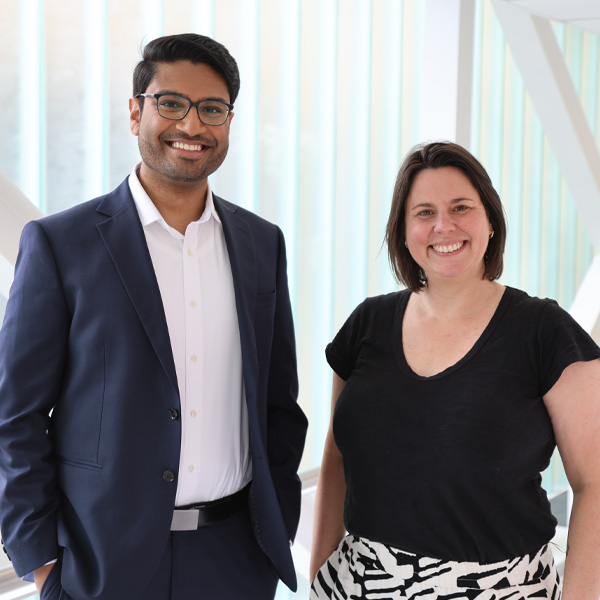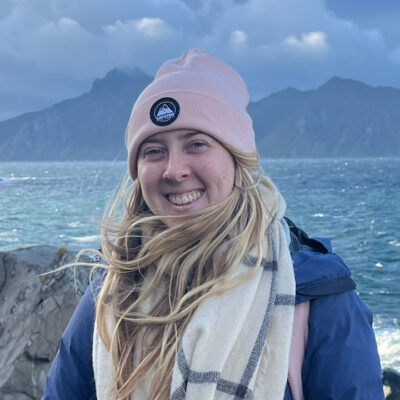Congenital diaphragmatic hernia Doctoral Thesis excellence progresses research to clinical trial
By Hudson Institute communications
Hudson Institute PhD graduate Dr Aidan Kashyap has received one of Monash University’s highest student academic honors for his research into congenital diaphragmatic hernia (CDH).

Dr Kashyap received the Mollie Holman Medal for his research, marking him as a researcher of the highest order, receiving the best thesis of the year for the Faculty of Medicine, Nursing and Health Sciences.
Most babies navigate the transition to newborn life without complications, however some require assistance in breathing at birth because their underdeveloped lungs are not ready for life in the outside world. One devastating cause of impaired lung development is CDH.
What is CDH?
- Around 1 in 4,000 babies are born with CDH.
- About 30 per cent of these die soon after birth while survivors face life-long health problems.
- Babies with CDH have a hole in their diaphragm (the large muscle that separates the chest from the abdomen).
- Organs in the abdomen including the intestines, stomach and liver can move through the hole in the diaphragm and into the baby’s chest.
- It is called a hernia when organs move through the hole.
- CDH can prevent the baby’s lungs developing completely, causing difficulty breathing at birth.
In his thesis, Dr Kashyap used a pre-clinical model of congenital diaphragmatic hernia to better understand the physiology underlying the way infants with CDH transition to newborn life, and then investigated fetal and neonatal interventions that could improve this transition.
“We firstly aimed to better prepare these infants for birth by improving fetal lung development; using a fetal surgical treatment (FETO) to enhance fetal lung growth, and a medication that could be taken by mothers (sildenafil) to enhance the development of blood vessels within the fetal lungs,” Dr Kashyap said.
“We then aimed to improve management at birth. During fetal life, the baby is sustained by oxygen from the mother’s placenta, delivered via the umbilical cord. Severing this connection at birth forces newborns with CDH to become entirely reliant on their underdeveloped lungs for oxygen. We found that if umbilical cord clamping was delayed until after filling the lungs with air, then oxygen delivery to the brain was maintained at safe levels during the transition to newborn life and more blood could flow through the newborn lungs at lower pressures. In babies who require resuscitation at birth (such as CDH babies), this form of ‘physiologically based cord clamping’ can only be clinically possible using specialised neonatal resuscitation equipment that can be brought to the bedside.”
CDH clinical trial
Timely funding from CDH Australia for this specialised neonatal resuscitation equipment has enabled the team to join an international clinical trial and translate their research findings to patients and their families right here at Monash Health.
Speaking of the award, Dr Kashyap said, “I feel so honoured to receive this prestigious award and thankful for the support I have received from my supervisors – Prof Stuart Hooper, Dr Ryan Hodges, Dr Kelly Crossley and Dr Philip DeKoninck – and the wider Hudson Institute of Medical Research and School of Clinical Sciences at Monash Health teams throughout my PhD.
“This award recognises the meaningful translational research we can accomplish in this precinct and I look forward to continuing to work closely with scientists, clinicians, patients and their families to improve outcomes in maternal, fetal and neonatal health in our community.”
Contact us
Hudson Institute communications
t: + 61 3 8572 2761
e: communications@hudson.org.au
About Hudson Institute
Hudson Institute’ s research programs deliver in three areas of medical need – inflammation, cancer, women’s and newborn health. More
Hudson News
Get the inside view on discoveries and patient stories
“Thank you Hudson Institute researchers. Your work brings such hope to all women with ovarian cancer knowing that potentially women in the future won't have to go through what we have!”






